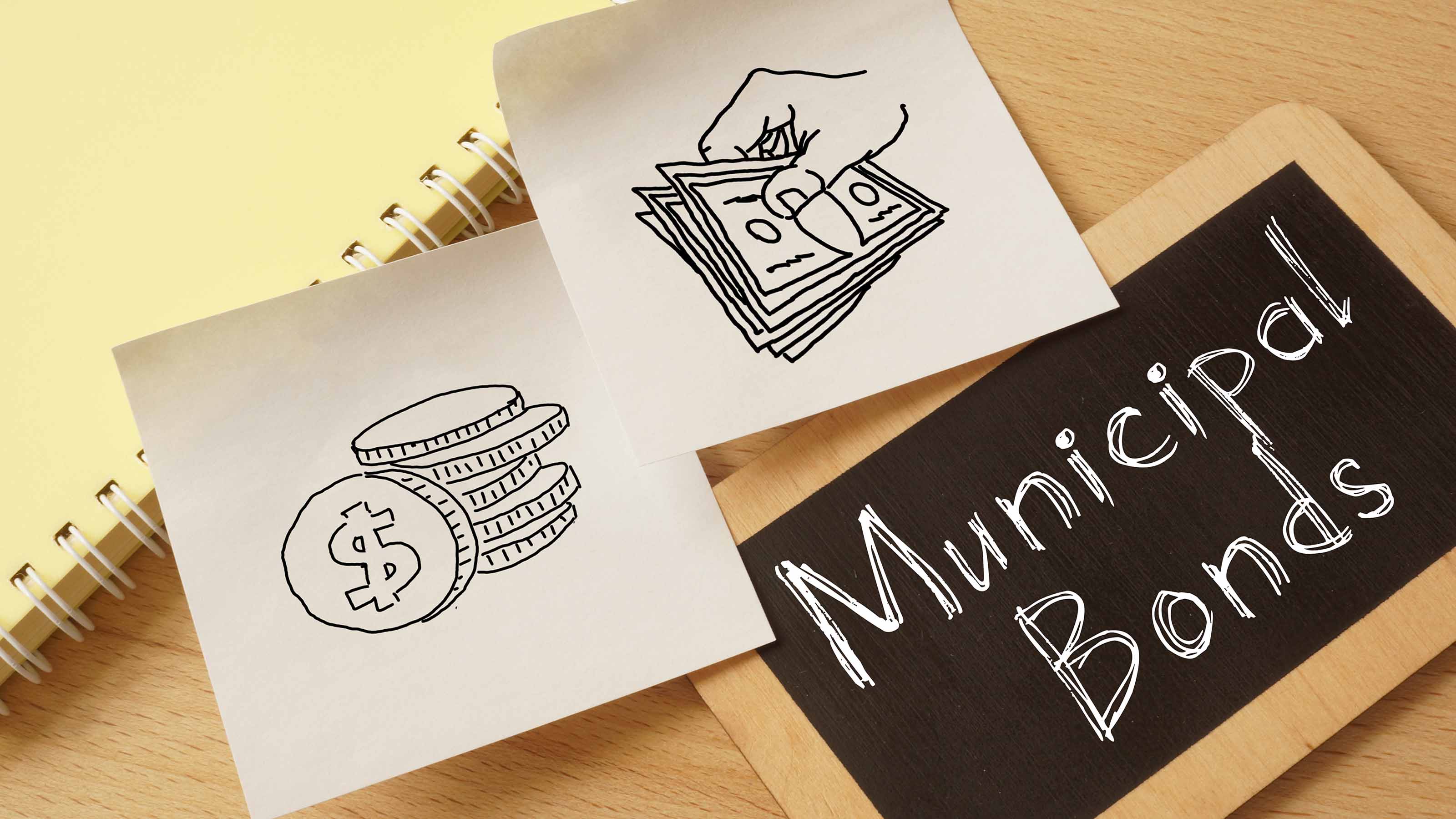High-Yield Munis Are Due to Cool
Bonds of less-creditworthy municipal issuers have surged in the last year. Investors should temper their expectations for future returns.

Profit and prosper with the best of Kiplinger's advice on investing, taxes, retirement, personal finance and much more. Delivered daily. Enter your email in the box and click Sign Me Up.
You are now subscribed
Your newsletter sign-up was successful
Want to add more newsletters?

Delivered daily
Kiplinger Today
Profit and prosper with the best of Kiplinger's advice on investing, taxes, retirement, personal finance and much more delivered daily. Smart money moves start here.

Sent five days a week
Kiplinger A Step Ahead
Get practical help to make better financial decisions in your everyday life, from spending to savings on top deals.

Delivered daily
Kiplinger Closing Bell
Get today's biggest financial and investing headlines delivered to your inbox every day the U.S. stock market is open.

Sent twice a week
Kiplinger Adviser Intel
Financial pros across the country share best practices and fresh tactics to preserve and grow your wealth.

Delivered weekly
Kiplinger Tax Tips
Trim your federal and state tax bills with practical tax-planning and tax-cutting strategies.

Sent twice a week
Kiplinger Retirement Tips
Your twice-a-week guide to planning and enjoying a financially secure and richly rewarding retirement

Sent bimonthly.
Kiplinger Adviser Angle
Insights for advisers, wealth managers and other financial professionals.

Sent twice a week
Kiplinger Investing Weekly
Your twice-a-week roundup of promising stocks, funds, companies and industries you should consider, ones you should avoid, and why.

Sent weekly for six weeks
Kiplinger Invest for Retirement
Your step-by-step six-part series on how to invest for retirement, from devising a successful strategy to exactly which investments to choose.
High-yield municipal bond funds have had a terrific run in recent years. But with yields now at such low levels, investors should temper their expectations, says Jim Murphy, manager of T. Rowe Price Tax-Free High Yield (symbol PRFHX).
The average fund that invests in the debt of financially shaky state- and local-government entities returned 8.8% annualized over the past three years. (Over the past year, the average high-yield muni fund surged 11.0%. Interest payments from muni bonds are generally exempt from federal income taxes. Interest from bonds issued within an investor's home state may be exempt from state taxes as well.
Murphy's fund has done slightly better, returning 11.1% over the past year and 9.2% annualized over the past three years (all returns are through February 12). But after such a strong run, he's lowering his sights for the near term. "If we return 4% over the next year, we'll be very happy with that," Murphy says. That's because yields are so low, the best that even a brilliant manager may be able to do is clip coupons. Murphy's fund currently yields 3.2%. For an investor in the top federal tax bracket of 39.6%, that's equivalent to a yield of 5.3% from a taxable bond.
From just $107.88 $24.99 for Kiplinger Personal Finance
Become a smarter, better informed investor. Subscribe from just $107.88 $24.99, plus get up to 4 Special Issues

Sign up for Kiplinger’s Free Newsletters
Profit and prosper with the best of expert advice on investing, taxes, retirement, personal finance and more - straight to your e-mail.
Profit and prosper with the best of expert advice - straight to your e-mail.
Despite his fund's name, Murphy invests little in junk munis, or debt with below-investment-grade ratings. Recently 71% of the fund's assets were invested in bonds rated triple-B or better. "It is very difficult to run a pure-junk muni fund because, in general, munis are a very high-quality market," Murphy says.
[EMBED TYPE=POLL ID=22730]
But he'll venture into low-rated bonds when he and his team of analysts think there's a strong chance for a turnaround. For example, he bought bonds issued by Barnabas Health in 2006, when its financial outlook was grim but before rating agencies trimmed its standing to double-B-plus in 2009. But Murphy added to his position in the West Orange, N.J., operator of health care facilities, both before and after the downgrades. Eventually, Barnabas's finances improved, and its investment-grade rating was restored. About 17% of the fund's assets are invested in hospital bonds, Murphy says.
More than 20% of the fund's assets are in muni bonds backed by corporations (companies may partner with municipalities to issue tax-free bonds if they use the proceeds to finance projects for the public good). For example, one of the fund's top holdings is debt issued by St. John the Baptist Parish, in Louisiana, and backed by Marathon Oil. The debt was used to fund the building of a new refinery during the rebuilding efforts following Hurricane Katrina.
Murphy says that large allocation to tax-exempt corporate debt is a boon for his fund, because it lets him leverage T. Rowe Price's corporate-bonds team to assist with analysis and research. For corporate-backed munis, the backing company has the obligation to repay the debt, meaning, for example, that the creditworthiness of Marathon Oil establishes the quality of the bonds Murphy purchased, rather than the creditworthiness of St. John the Baptist Parish.
The fund has a mandate to focus on long-term debt. The average maturity of bonds in the portfolio is 21 years, and its average duration, a measure of interest-rate sensitivity, is 5.8 years. That implies that the fund's price would decline about 5.8% in value if interest rates rose by one percentage point.
Profit and prosper with the best of Kiplinger's advice on investing, taxes, retirement, personal finance and much more. Delivered daily. Enter your email in the box and click Sign Me Up.

-
 5 Vince Lombardi Quotes Retirees Should Live By
5 Vince Lombardi Quotes Retirees Should Live ByThe iconic football coach's philosophy can help retirees win at the game of life.
-
 The $200,000 Olympic 'Pension' is a Retirement Game-Changer for Team USA
The $200,000 Olympic 'Pension' is a Retirement Game-Changer for Team USAThe donation by financier Ross Stevens is meant to be a "retirement program" for Team USA Olympic and Paralympic athletes.
-
 10 Cheapest Places to Live in Colorado
10 Cheapest Places to Live in ColoradoProperty Tax Looking for a cozy cabin near the slopes? These Colorado counties combine reasonable house prices with the state's lowest property tax bills.
-
 What Fed Rate Cuts Mean For Fixed-Income Investors
What Fed Rate Cuts Mean For Fixed-Income InvestorsThe Fed's rate-cutting campaign has the fixed-income market set for an encore of Q4 2024.
-
 The Most Tax-Friendly States for Investing in 2025 (Hint: There Are Two)
The Most Tax-Friendly States for Investing in 2025 (Hint: There Are Two)State Taxes Living in one of these places could lower your 2025 investment taxes — especially if you invest in real estate.
-
 The Final Countdown for Retirees with Investment Income
The Final Countdown for Retirees with Investment IncomeRetirement Tax Don’t assume Social Security withholding is enough. Some retirement income may require a quarterly estimated tax payment by the September 15 deadline.
-
 Dividends Are in a Rut
Dividends Are in a RutDividends may be going through a rough patch, but income investors should exercise patience.
-
 Municipal Bonds Stand Firm
Municipal Bonds Stand FirmIf you have the cash to invest, municipal bonds are a worthy alternative to CDs or Treasuries – even as they stare down credit-market Armageddon.
-
 High Yields From High-Rate Lenders
High Yields From High-Rate LendersInvestors seeking out high yields can find them in high-rate lenders, non-bank lenders and a few financial REITs.
-
 Time to Consider Foreign Bonds
Time to Consider Foreign BondsIn 2023, foreign bonds deserve a place on the fringes of a total-return-oriented fixed-income portfolio.
-
 The 5 Best Actively Managed Fidelity Funds to Buy and Hold
The 5 Best Actively Managed Fidelity Funds to Buy and Holdmutual funds Sometimes it's best to leave the driving to the pros – and these actively managed Fidelity funds do just that, at low costs to boot.